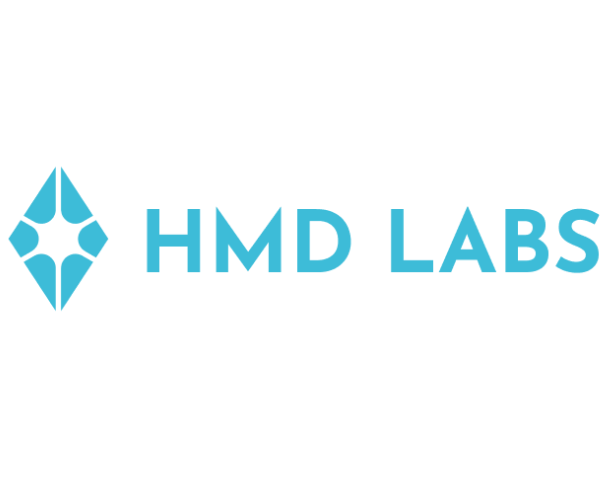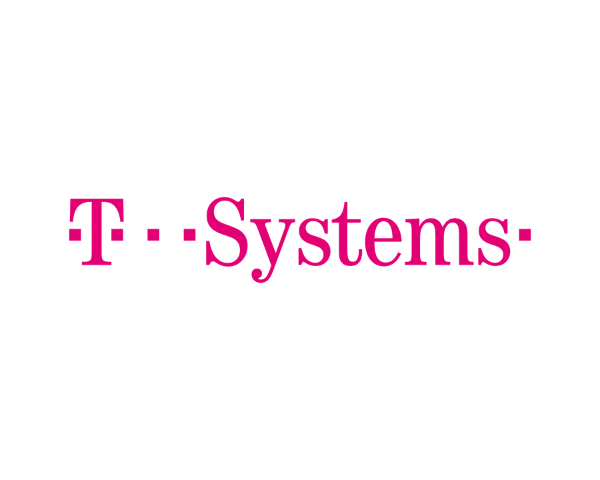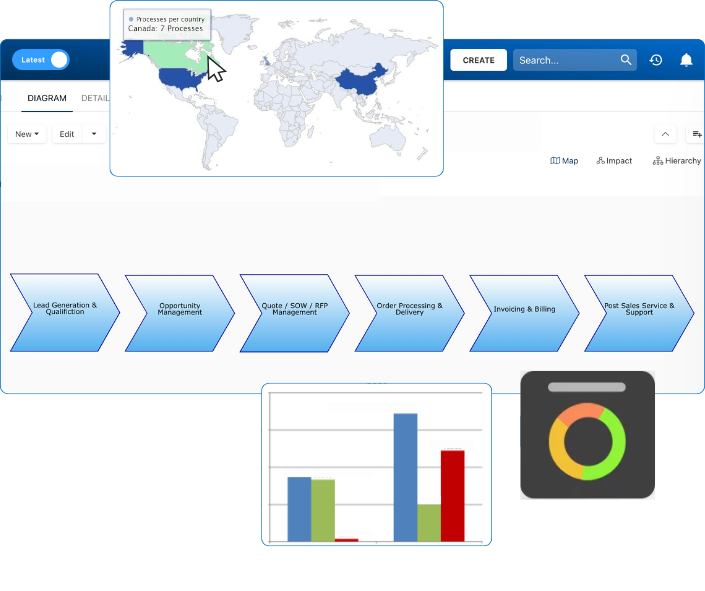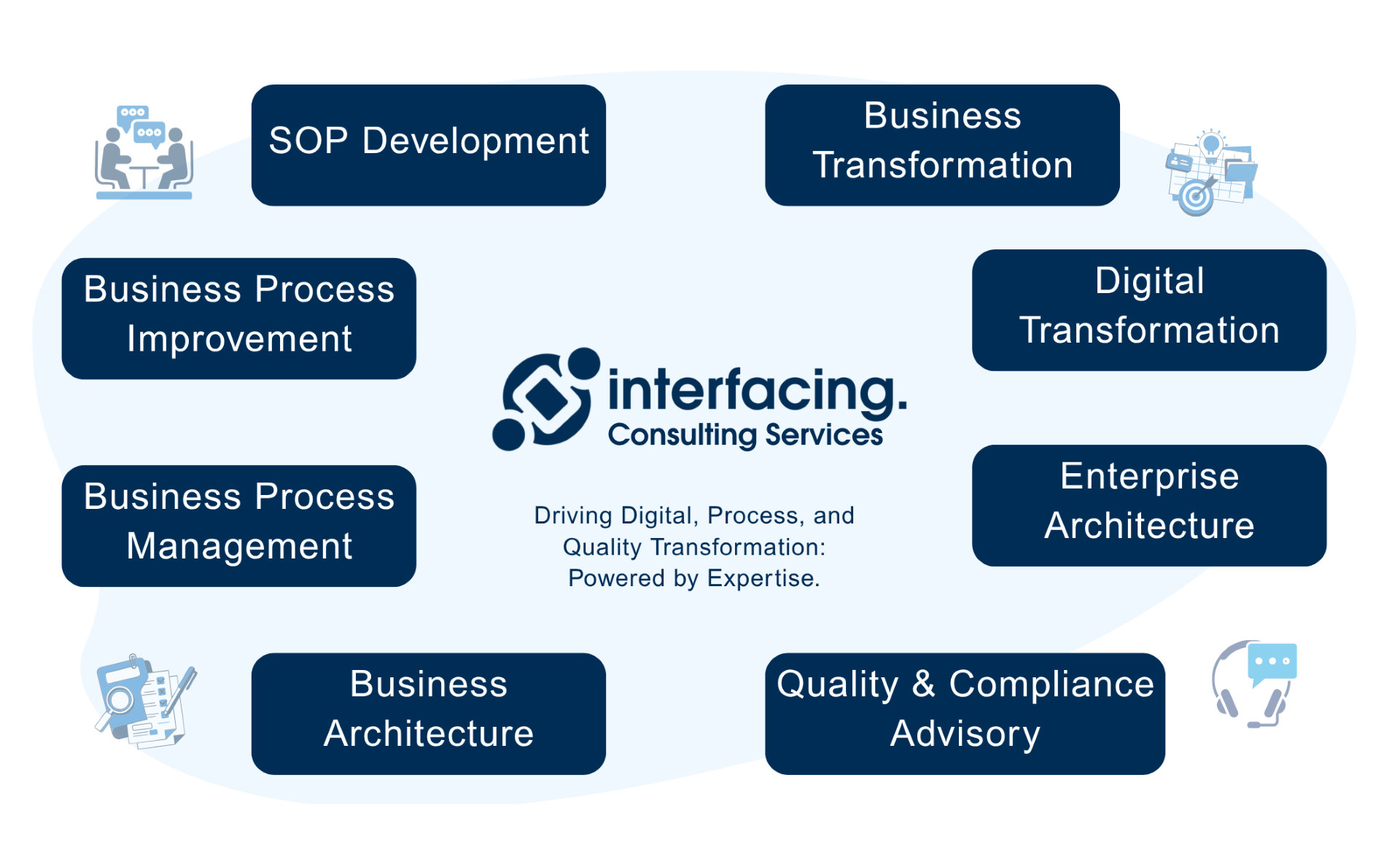- Business Process Management (BPM)Document Management System (DMS)Electronic Quality Management System (QMS)Risk, Governance & Compliance (GRC)Low Code Rapid Application Development (LC)Business Continuity Management (BCM)Enterprise Architecture (EA)Business Process Management (BPM)Document Management System (DMS)
- Document Control Overview
- AI Content Creation & Improvement
- Policy & Procedure Management (SOP)
- AI Content Mining Parser
- Collaboration & Governance
- Data Migration & Integration
- Interfacing Offline App
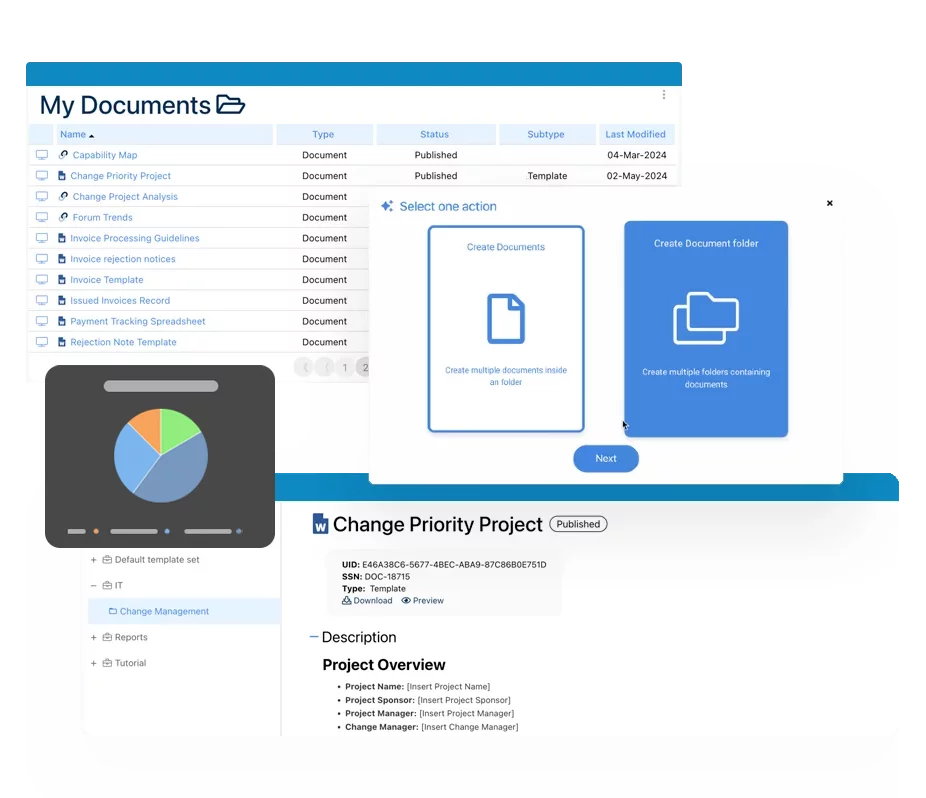 Electronic Quality Management System (QMS)
Electronic Quality Management System (QMS)- Quality Management System Overview
- Document Control & Records Management
- Audit & Accreditation Management
- Corrective & Preventative Action
- Quality Event (Non-conformity / Complaint/ Compliance)
- Risk Management
- Incident Management
- Environmental Health & Safety
- Product & Supplier Management (SCAR)
- Training Management
- Control Management
- Action Items Management
- Management Review
- FMEA
- Pharmacovigilance
- Data Migration & Integration
 Risk, Governance & Compliance (GRC)
Risk, Governance & Compliance (GRC)- Risk, Governance & Compliance Overview
- Risk & Control Management
- Regulatory Compliance
- Collaboration & Governance
- Data Migration & Integration
- Interfacing Offline App
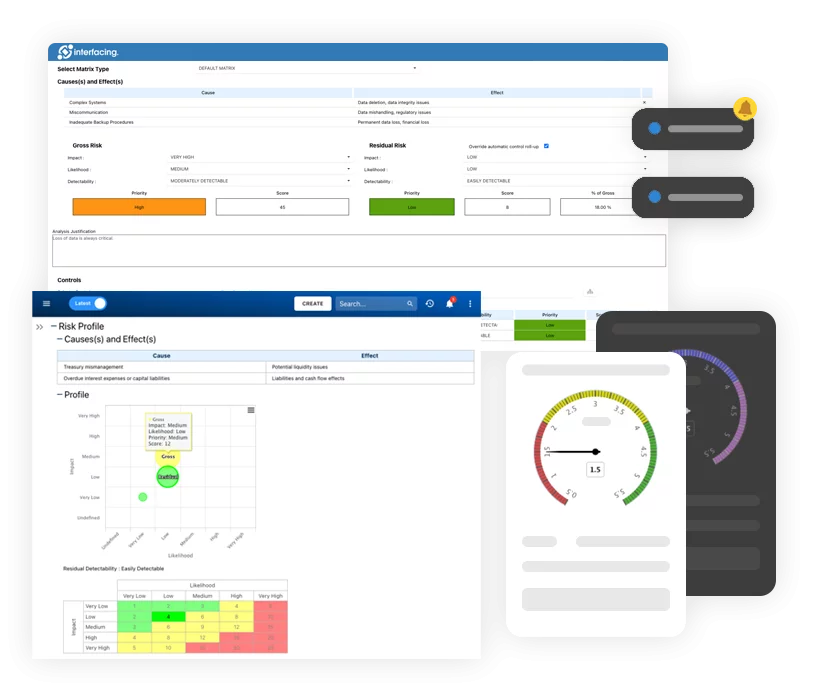 Low Code Rapid Application Development (LC)
Low Code Rapid Application Development (LC)- Low Code Automation Platform Overview
- Electronic Web Form Design (eFORMS)
- Database Table Entity Designer
- System Integration Designer
- Design & Manage Tasks
- Design & Manage BPMS Apps
- Custom Rules/Guards/Actions
- Electronic Services
- User Homepage
- BAM (Business Activity Monitoring)
- Custom Dashboard Design
- Data Migration & Integration
 Business Continuity Management (BCM)
Business Continuity Management (BCM)- Business Continuity Management Overview
- Business Impact Analysis
- Disaster Recovery Simulation
- Action Item Management
- Mass Notification Management
- Asset Management
- Interfacing Offline App
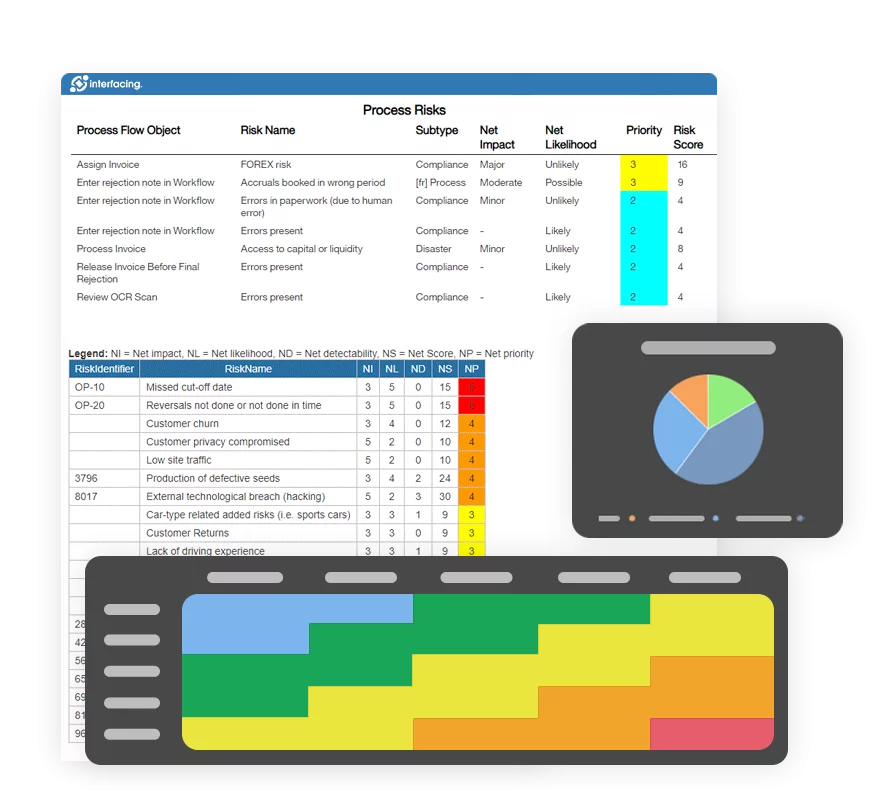 Enterprise Architecture (EA)
Enterprise Architecture (EA) - IndustriesRegulatory ComplianceUse CasesLearning CenterFramework & PracticesIndustries
- Healthcare
- Medical Device Technology
- Life Science, Pharmaceutical
- Aerospace & Defense
- Airlines and Aviation
- Media & Telecommunications
- Government and Military
- Technology
- Energy
- Logistics & Port Operations
- Banking & Capital Markets
- Retail & Consumer
- Consulting
- Education
- Engineering & Construction
- Manufacturing
- Financial Services
- Insurance
- Chemicals
Regulatory Compliance- Regulatory Compliance
- ISO
- ISO 9001 (guide)
- ISO 9001:2026 (preparation)
- ISO 17025
- ISO 27000
- ISO 27001
- ISO27002
- ISO 42001
- EU AI Act
- SOC 2 Type 1 & 2
- Sarbanes Oxley
- GxP
- GRC
- Basel
- Digital Signature
- GDPR
- IFRS
- NIST SP 800-53
 Use Cases
Use Cases- Quality Management System (QMS)
- Digital Transformation
- Continuous Improvement
- Governance, Risk & Compliance
- Knowledge Management
- System Deployment (ERP, CRM…)
 Learning CenterFramework & Practices
Learning CenterFramework & Practices - AboutCustomer SuccessPartners



Regulatory Compliance,
Policy & Standards
Please Select contact form.
Ensuring Confidence Through Compliance: Streamline, Simplify, and Stay Ahead of Regulations

Achieving Excellence in Regulatory Compliance
In today’s complex and fast-evolving business environment, regulatory compliance is more than a legal obligation—it’s a cornerstone of trust, accountability, and sustainable success. Organizations are increasingly expected to adhere to a growing array of regulations, policies, and standards, making effective compliance management a strategic imperative.
By integrating regulatory requirements into everyday business processes and aligning policies with operational objectives, organizations can ensure they remain agile, transparent, and prepared to adapt to future challenges. Managing compliance effectively isn’t just about meeting expectations—it’s about exceeding them and building a foundation for long-term growth.


Gartner® Certified
Enterprise Process Center® is recognized by Gartner® as a global leader in Digital Twin of an Organization solutions (DTO) and as a leader in Business Operation System, Operational Intelligence, Enterprise Business Process Analysis (EBPA) including Enterprise Architecture, Business Process Analysis, Strategy-to-Execution & Workflow Automation.
Discover
EPC’s toolkit provides organizations with:

Automatic
Regulation Parsing
Regulation Requirement Impact Intelligence

Regulation & Policy Generation with Integrated Controls

Digital
Signature
Governance Workflows

Integrated Compliance Management

Comprehensive Reporting & Dashboards
Automatic Regulation Parsing
Effortless Understanding of Complex Regulations
Simplify the complexities of compliance with our AI-powered regulation parsing.
EPC scans and interprets extensive regulatory texts, extracting actionable items with unparalleled speed and accuracy.
Save valuable time by automating the analysis of legal and regulatory documentation, ensuring that your organization stays ahead of evolving compliance landscapes with ease and confidence.


Regulation Requirement Impact Intelligence
Stay Ahead of Change with Strategic Insights
Harness AI to pinpoint the areas most affected by regulatory changes, providing a focused view of compliance priorities.
This feature offers a clear, actionable list of impacted objects, enabling your team to understand and address regulatory requirements with precision.
Customizable filters and exportable reports make it easy to align insights with your workflows, enhancing collaboration and ensuring every compliance need is accounted for.
Stay informed and prepared as regulations evolve, minimizing uncertainty and maintaining operational confidence.
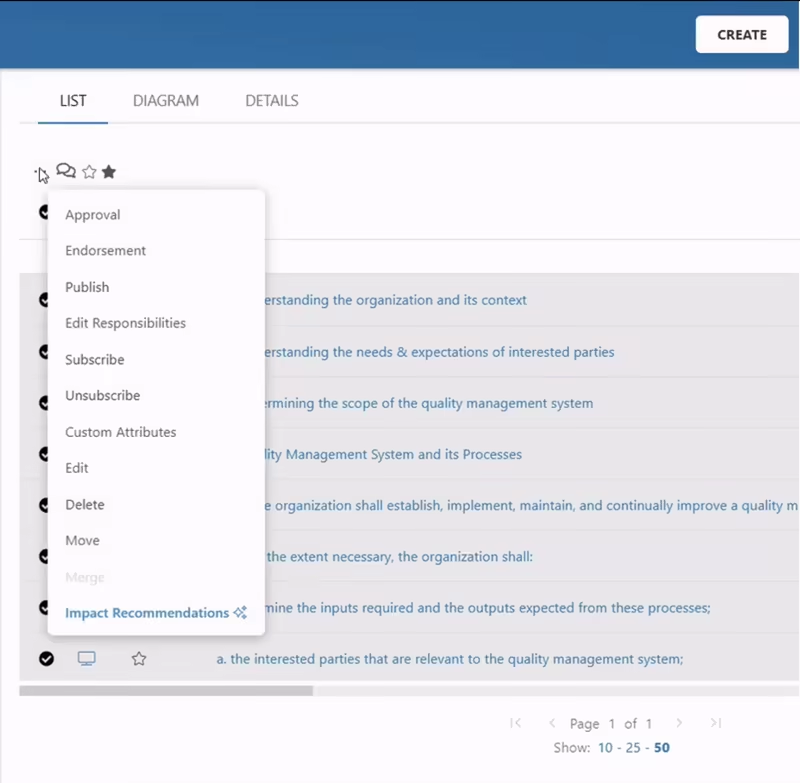

Regulation & Policy Generation with Integrated Controls
Precision Automation for Regulatory Compliance
Ensure precision automation in regulatory compliance and control libraries.
Automatically identify regional and industry-specific compliance needs, create comprehensive regulation & risk registries for assessment, and generate dynamic control libraries for enhanced governance.
With precision and automation, our AI system paves the way for a robust and resilient business environment.


Digital Signature
Effortless Authorization with Secure Validation
Empower your compliance processes with seamless and secure digital signature capabilities.
Enterprise Process Center® ensures authenticity and non-repudiation, enabling legally binding e-signatures for all critical documents.
Simplify approvals and audits with verifiable, timestamped signatures that align with regulatory requirements, boosting efficiency and confidence in your compliance operations.



Generate a Process Map in a Few Clicks
Discover the power of our feature as it effortlessly generates detailed end-to-end process map.
What do we mean by “end-to-end”? The A.I. takes care of automatically creating processes that include:
- Flow objects
- Materials
- Annotations
- Assigned responsible roles
- Flow Object Descriptions
This streamlined process ensures a comprehensive representation of your workflow, saving you time and effort.

Elevate Your Operations: Bridging Gaps, Enhancing Efficiency
Immerse your organization in the transformative capabilities of our AI system. It delves deep into your existing processes, unveiling previously unnoticed gaps, inefficiencies, and errors.
With the power of AI, your documentation takes on a dynamic life, consistently evolving and adapting to the ever-changing business landscape. It’s not just documentation; it’s a living entity that grows with your business.

Quick and Tailored Content on Demand
Imagine effortlessly obtaining fresh, tailor-made documentation to meet your specific needs, infused with your unique best practices, operating systems, and country-specific requirements.
Organizations can automate the creation of:
- Step-by-step guides
- Rule and System descriptions
- Policies
- Documentation templates
Step into a new standard in documentation creation, where customization converges with automation.

Elevate Your Documentation: AI’s Seamless Upgrade from Outdated Content
Explore the incredible capability of our AI to smartly enhance your outdated content, creating a strong foundation for fresh and improved documentation.
Our AI ensures you don’t need to reinvest when making the move from the old to the new, saving time and resources without compromising quality.

Precision Automation for Regulatory Compliance
Extend the capabilities of Interfacing’s AI system beyond process creation to ensure precision automation in regulatory compliance, risk management, and control libraries.
Automatically identify regional and industry-specific compliance needs, create comprehensive risk registries for assessment, and generate dynamic control libraries for enhanced governance.
With precision and automation, our AI system paves the way for a robust and resilient business environment.

Empowering Proactive Risk Management
Unlock the power of Interfacing’s AI system as a proactive shield for risks and controls. In a world where manual procedures often lead to non-compliance risks, our AI acts as a shield against such issues.
By proactively advising users of potential compliance conflicts, it ensures your processes adhere to regulatory standards.
The AI not only digitizes activities, eliminating redundancies but also becomes a guiding force in risk management and control libraries.
Governance Workflows
Automated, Reliable & Reportable Governance
Optimize compliance with numerous customizable workflows designed for transparency and accountability:


Integrated Compliance Management
Link Regulations, Policies & Requirements to Business Operations
Achieve a comprehensive, unified view of your compliance landscape. Our solution links regulations, policies, and requirements to your organization’s processes, risks, and controls for better alignment and easier management. With 360-degree visibility, you gain a complete, interconnected view of your compliance framework, ensuring full oversight from every angle.


Comprehensive Reporting & Dashboards
50+ Pre-Built Dashboards, Custom Reports, and Flexible Visuals
Access over 50 out-of-the-box dashboards and reports, plus the ability to build custom reports on all data captured within the platform.
Create personalized, flexible dashboards that align with your visual identity, and schedule automated report runs in the backend. Dive deeper with drill-down features in dashboards for detailed insights, enabling you to track performance and compliance effortlessly.
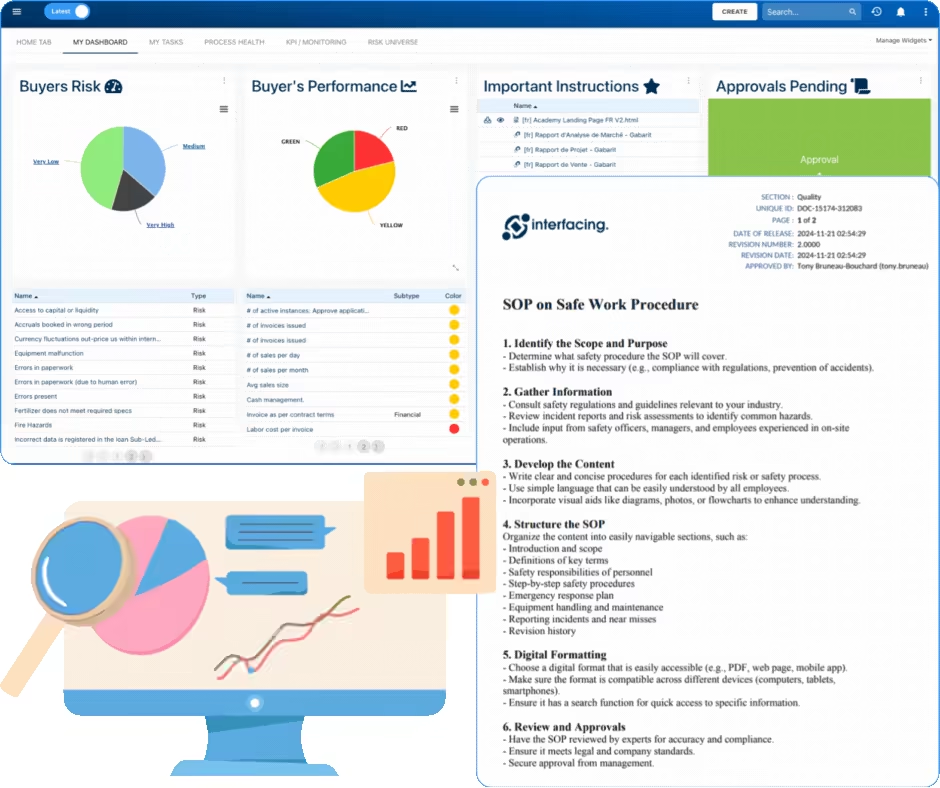

Why Choose Interfacing?
With over two decades of AI, Quality, Process, and Compliance software expertise, Interfacing continues to be a leader in the industry. To-date, it has served over 500+ world-class enterprises and management consulting firms from all industries and sectors. We continue to provide digital, cloud & AI solutions that enable organizations to enhance, control and streamline their processes while easing the burden of regulatory compliance and quality management programs.
To explore further or discuss how Interfacing can assist your organization, please complete the form below.

Documentation: Driving Transformation, Governance and Control
• Gain real-time, comprehensive insights into your operations.
• Improve governance, efficiency, and compliance.
• Ensure seamless alignment with regulatory standards.

eQMS: Automating Quality & Compliance Workflows & Reporting
• Simplify quality management with automated workflows and monitoring.
• Streamline CAPA, supplier audits, training and related workflows.
• Turn documentation into actionable insights for Quality 4.0

Low-Code Rapid Application Development: Accelerating Digital Transformation
• Build custom, scalable applications swiftly
• Reducing development time and cost
• Adapt faster and stay agile in the face of
evolving customer and business needs.
AI to Transform your Business!
The AI-powered tools are designed to streamline operations, enhance compliance, and drive sustainable growth. Check out how AI can:
• Respond to employee inquiries
• Transform videos into processes
• Assess regulatory impact & process improvements
• Generate forms, processes, risks, regulations, KPIs & more
• Parse regulatory standards into requirements

Request Free Demo
Document, analyze, improve, digitize and monitor your business processes, risks, regulatory requirements and performance indicators within Interfacing’s Digital Twin integrated management system the Enterprise Process Center®!
Trusted by Customers Worldwide!
More than 400+ world-class enterprises and management consulting firms






















